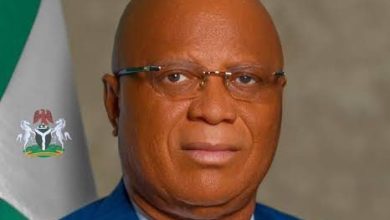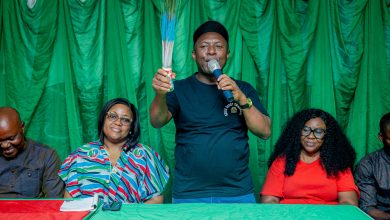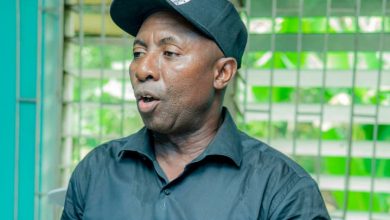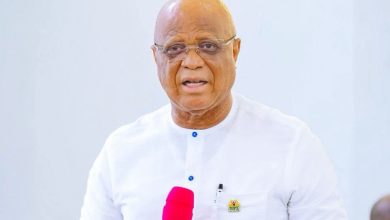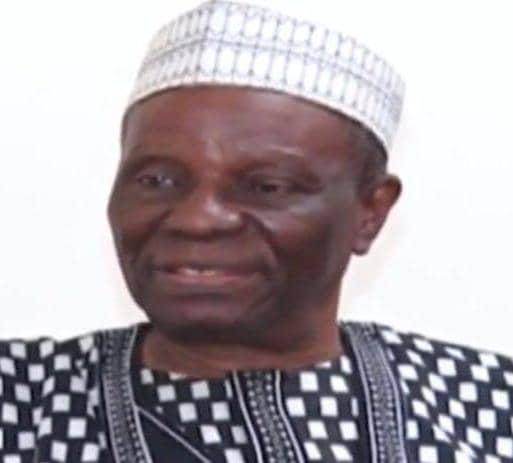
Although politicians are usually seen to be actively engaged in political party activities, they have little or no interest in the management of their political parties. Instead, they all want to hold public office and would do whatever it takes to get into office and remain there perpetually, even if it turns out to be at the expense of their political parties.
Former Nigerian Military President Ibrahim Badamasi Babangida arrived at the same conclusion as far back as 1989 while superintending the transition to civil rule, political programmes. IBB’s finding is still valid today, as it was some three (3) decades ago when he made it public.
A good example of the fulfilment of the observation is the ease with which the Peoples Democratic Party, PDP, that ruled the nation for 16 years from 1999, crumbled like a pack of cards after losing the presidential election of 2015. Many of its members have since defected to the ruling party just to remain in office.
After producing 3 Nigerian presidents, Olusegun Obasanjo (1999-2007), Umaru Yar’Adua (2007-2010) and Goodluck Jonathan (2010-2015), PDP suddenly deteriorated and now displays so many signs of an organisation that is virtually incapable of leading an independent existence.
Last week, the party organised a delegation to visit and hold some discussions with the nation’s electoral referee – the Independent National Electoral Commission, INEC. The team was led by the party’s acting National Chairman, Umar Damagum, who, on arrival, was unable to persuade the nation through his media interview that he was fully conversant with the purpose of the visit. He eventually managed to suggest that his party, having become overwhelmed by controversies from within, had to come to INEC to plead for guidance. If so, why did he alone sign a letter to INEC against the basic rule that there ought to be two signatories?
Read Also: JUST IN: PDP Leaders In High-Level Meeting with INEC Over Lingering Party Issues
While making his preliminary observation, the Chairman of INEC, Professor Mahmood Yakubu, decried the high degree of inconsistency in PDP’s correspondences with his commission. He said that within a short period, the party had nominated 3 different persons as its national secretary. Unfortunately, Damagum had a day before the visit to INEC described as unauthorised, comments by Debo Ologunagba, the party’s publicity secretary.
The latter’s statement was however a better articulated response to INEC’s concern. Ologunagba was emphatic that the PDP had no obligation to invite INEC or brief her on routine internal matters. The publicity secretary also argued that even concerning those activities which should concern INEC, the PDP had a right to ask an acting secretary to write on its behalf, just as INEC can delegate any of its officials to act on behalf of another.
One popular statement in Nigeria today is that political party matters are internal to them and they should be allowed to use their internal processes to resolve them. If so, why should INEC allow itself to be pushed into a position in which it is allegedly helping a political party to resolve its issues when it is not supposed to be a member of any political party?
Again, why is INEC being misled into thinking that it can look into a party matter if those bringing up the matter are the statutory signatories of the party? The judiciary has not said any such things. Instead, what the highest court of the land loudly said recently in the case of Senator Samuel Anyanwu, the embattled national secretary of the PDP, was that “political parties possess the autonomy to manage their internal affairs without undue interference from external bodies, including the judiciary.”
The Supreme Court knows that the law empowers INEC to monitor party primaries to arrive at fair and just results, yet it allowed the All-Progressives Congress, APC, to choose Senator Ahmed Lawan as its flagbearer for the 2023 Senatorial Election in Yobe North constituency instead of the winner of the primaries, Bashir Machina. The court did not ask INEC who won the primaries she reportedly monitored; all that mattered was the need to approve the candidature of Lawan, being the party’s choice. The implication of this is that there is no need for all the numerous rules and guidelines that have made our electoral processes and procedures to become over-regulated.
We certainly need to make our electoral procedure less complicated. INEC should therefore face its main task instead of dabbling in party matters that the political parties are expected to handle. Our parties cannot mature if INEC does not review its feeding-bottle supervision of their activities.
It is on record that on its part, INEC has not been able to handle its assignments credibly. Concerning the registration of voters, for example, the commission has to develop a better process that discourages unclaimed voters’ cards. Many people, such as the different groupings in Warri, Delta State, who are greatly agitated over the delimitation of electoral constituencies, will be massively pacified if the commission employs empirical criteria in handling the subject.
On voting day, the unending inadequate human and material resources, as well as poor transportation arrangements with transporters, must end if public perception of INEC is to improve. The commission will be better appreciated if it spends more of its time on the different segments of the electoral process rather than holding court to listen to different versions of the claims of several factions of political parties.
One assignment which INEC should do all it can to avoid is the conduct of local government elections. This is because the commission cannot run away from the same executive interferences that have, over the years, burdened the state’s independent electoral commissions. If INEC starts conducting local government elections, all the seats nationwide will now be “won” by the ruling party at the federal level instead of the current trend whereby it is the ruling party in a state that ‘wins’ the seats in a particular state.
A more critical factor against the transfer of the conduct of local elections to INEC is its capacity to federalise local events. If the federal INEC is empowered to execute local activities, what will local officials supervise? It would only lead to a mockery of our local government system, featuring underemployed local officials.
Interestingly, the clamour for state police is getting louder by the day. If the state is allowed to recruit, train and organise a police force, will the same state whose control over local elections currently irritates many people not turn around to run a more bizarre police system? Whether it does so or not, it is not the responsibility of federal authorities to run public activities at the local level, as such a system cannot facilitate development at the grassroots.
Indeed, in most democracies, elections are efficiently handled at the ward and county levels. Nigerians should ask their lawmakers why they are so anxious to transfer the conduct of local elections from perceived incompetent local officials to federal authorities who are not necessarily more competent.
It is important to help local authorities mature by using the principle of inclusivity to allow them to handle activities at their own level. It is when this is in vogue that Nigeria can witness the emergence of strong institutions at all levels of development. If this approach is not extended to political parties, we should not look forward to a strong party system upon which political ideologies are anchored.
Against this background, INEC should be left alone to focus on the functions of the referee of a match rather than adding the role of team manager to its job. The commission has enough work to do on its own and should therefore not be bothered with routine meetings with political parties that are pretending to be unaware of what is expected of them in an election process.
The judiciary can sweep the ground for all by insisting that all courts should follow precedents set at the higher courts. Here, let us take a look at the case of Senator Samuel Anyanwu, who was sacked by a court from his position as national Secretary of the PDP. On appeal, he argued that the court lacked jurisdiction to entertain the matter. Now that the Supreme Court has said that parties should be allowed to resolve their issues, the same litigant is back in the courts that he had earlier argued had no jurisdiction.
Until September, no one is sure if the court where he is now will overrule the Supreme Court or whether both the judiciary and INEC would at last realise that our political parties have a hidden agenda.
Culled from: Forefront Magazine

